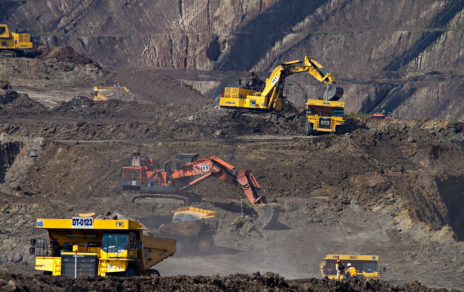Some European auto parts plants have suspended output and Mercedes-Benz is considering ways to protect against shortages of rare earths, as concerns about the damage from China’s restrictions on critical mineral exports deepen.
China’s decision in April to suspend exports of a wide range of rare earths and related magnets has upended the supply chains central to automakers, aerospace manufacturers, semiconductor companies and military contractors around the world.
The move underscores China’s dominance of the critical mineral industry, key to the green energy transition, and is seen as leverage by China in its trade war with US President Donald Trump. China produces around 90% of the world’s rare earths.
EU trade commissioner Maros Sefcovic said on Wednesday that he and his Chinese counterpart had agreed to clarify the rare earth situation as quickly as possible.
“We must reduce our dependencies on all countries, particularly on a number of countries like China, on which we are more than 100% dependent,” said EU Commissioner for Industrial Strategy Stephane Sejourne.
“The export (curbs) increase our will to diversify,” he said as Brussels identified 13 new projects outside the bloc aimed at increasing supplies of metals and minerals essential.
Earlier on Wednesday, Mercedes-Benz production chief Joerg Burzer said he was talking to the carmaker’s top suppliers about building “buffers” such as rare earth stockpiles to protect against potential threats to supply. Mercedes was currently not affected by the shortage.
BMW said that part of its supplier network was affected by the shortage but that its own plants were running as normal.
Europe’s auto supplier association CLEPA said several production lines have been shut down after running out of supplies, the latest to warn about the growing threat to manufacturing due to the controls.
Of the hundreds of requests for export licenses made by auto suppliers since early April, only a quarter have been granted so far, CLEPA added, with some requests rejected on what the association described as “highly procedural grounds”.
It did not identify the companies but warned of further outages.
While China’s announcement in April coincided with a broader package of retaliation against Washington’s tariffs, the measures apply globally and are causing worry among business executives around the world.
German and US automakers have complained that the restrictions imposed by China threaten production, following a similar grievance from an Indian EV maker last week.
Many are lobbying their governments to find a quick solution and are scrambling to find alternatives.
Some companies only have enough supplies to last a few weeks or months, Wolfgang Weber, CEO of Germany’s electrical and digital industry association ZVEI, said in an emailed statement.
“Companies currently feel abandoned by politicians and are partly looking for solutions to their difficult situation on their own in China,” he said.
Swedish Autoliv, the world’s biggest maker of airbags and seatbelts, said its operations are not affected, but CEO Mikael Bratt said he has set up a task force to manage the situation.
Reliance on China
Automakers from General Motors to BMW and major suppliers like ZF and BorgWarner are researching or have developed motors with low- to zero rare earth content in a bid to cut their reliance on China, but few have managed to scale production to bring down costs.
BMW has deployed a magnet-free electric motor for its latest generation of electric cars, but still requires rare earths for smaller motors powering components like windshield wipers or car window rollers.
German carmaker Volkswagen said it is not seeing any shortages at the moment.
China’s slow pace of easing its critical mineral export controls has become a focus of Trump’s criticism of Beijing, which he says has violated the truce reached last month to roll back tariffs and trade restrictions.
Trump has sought to redefine the United States’ trading relationship with its biggest economic rival by imposing steep tariffs on billions of dollars of imported goods in hopes of narrowing a trade deficit and bringing back lost manufacturing.
Trump imposed tariffs as high as 145% against China only to scale them back after a selloff in stock, bond and currency markets over the sweeping nature of the levies. China has responded with its own tariffs and is leveraging its dominance in key supply chains to persuade Trump to back down.
Trump and Chinese President Xi Jinping are expected to talk this week to try to iron out their differences and the export curbs are expected to be high on the agenda.
In a social media post on Wednesday, Trump said that Xi is “VERY TOUGH, AND EXTREMELY HARD TO MAKE A DEAL WITH”, highlighting the fragility of the deal.
(Reporting by Victoria Waldersee in Berlin and Christoph Steitz in Frankfurt; Additional reporting by Hakan Ersen in Frankfurt and Marie Mannes in Stockholm; Writing by Josephine Mason in London; Editing by Emelia Sithole-Matarise and Hugh Lawson)
